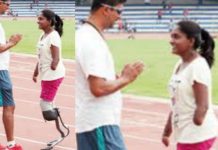Detailed Current Affairs 16th July 2016 For UPSC
Dear Sehpaathians
We are here with the detailed Current Affairs 16th July 2016 which are very important for UPSC / SSC exams which are scheduled to take place in the coming months.
Census 2011 records rise in literacy among disabled
New numbers released from Census 2011 show that literacy among disabled has increased in the country.
More than half of the total disabled population in India are now literate. The literacy rate among the disabled has increased from 49.3% in 2001 to 54.5% in 2011. However, this is significantly lower than the overall literacy level of India which stands at 74%.
Both rural and urban areas saw an increase of around four percentage points in literacy rate of the disabled.
Among the urban disabled, 68% are literate while the number stands at 49% for disabled in the rural areas.
The difference between literacy rate of males and females is wider in rural areas — 72% of disabled males and 61% of disabled females in urban areas are literate, a difference of nine percentage points.
But in rural areas, the difference stands at 20 percentage points, as 58% of disabled males and only 38% of disabled females are literate.
India slips on business optimism index: survey
Business Optimism Index, part of Grant Thornton International Business Report (IBR) for April-June 2016, was recently released. The survey took note of 2,500 businesses across 36 economies.
Key Points:
- India slipped to the third position, during April-June, after remaining on top globally for the two preceding quarters.
- Companies in India were mainly concerned about the delays in key reforms like the goods and services tax, non-resolution of tax disputes and the banking sector’s performance.
- India continues to top the chart on expectations of revenue increases.
- Growth in employment expectations dropped to the second position during this period from top rank in the previous quarter.
- The rank on optimism further slipped to fourth in terms of profitability expectations.
- While the business confidence in India has weakened, there is a rise in optimism on the export front. However, red tape continued to hamper growth and ranked India as number two on the issue.
- Research and development continue to be an area of concern.
- On the global front, there is a rise in the proportion of businesses worldwide expecting increased revenue over the coming 12 months. However, growth in global export expectations continues to be slow, indicating that revenue is dependent on domestic consumer spending power.
- Consumer spending is now under threat from increased political instability, recovering oil prices and reduced plans to offer pay increases.
Ulaanbaatar Declaration adopted
The 11th edition of the Asia-Europe Meeting Summit (ASEM11) was recently concluded in Ulaanbaatar.
- The theme of the Summit is‘20 Years of ASEM: Partnership for the Future through Connectivity’.
Despite international efforts to counter terrorism over the past 15 years, the phenomenon has become more complex and gruesome with home-grown terrorists, foreign fighters, ISIS and lone wolf attacks by radicalized youth. The widespread use of social media by terrorists to spread their message was becoming a major problem.
- Ulaanbaatar Declarationwas adopted as an outcome document of the Summit, in which the participating leaders from Asia and Europe renewed their political will and strong resolve to work together to promote mutually beneficial partnership and co-operation between the two continents, with a view to building a better future for the peoples of Asia and Europe.
ASEM:
The Asia-Europe Meeting (ASEM) is an informal process of dialogue and cooperation bringing together the 28 European Union member states, 2 other European countries, and the European Union with 21 Asian countries and the ASEAN Secretariat.
- The ASEM dialogue addresses political, economic and cultural issues, with the objective of strengthening the relationship between the two regions, in a spirit of mutual respect and equal partnership.
- It was officially established on 1 March 1996 at the first summit in Bangkok, Thailand.
- The ASEM Summit is a biennial meeting between the Heads of State and Government, the President of the European Council, the President of the European Commission, and the Secretary-General of the Association of Southeast Asian Nations (ASEAN).
UNESCO declares Nalanda Mahavihara World Heritage Site
UNESCO declares Bihar’s much awaited ancient site – the ruins of Nalanda Mahavihara – a world heritage site, barely 98 km away from Patna.
This would be the second UNESCO heritage site after Mahabodhi temple in Bodh Gaya.
The ancient seat of learning, one of the world’s oldest universities construction of which began in 5th century AD, flourished under the Gupta rulers.
Key facts:
Nalanda stands out as the most ancient university of the Indian Subcontinent.
It engaged in the organized transmission of knowledge over an uninterrupted period of 800 years.
The historical development of the site testifies to the development of Buddhism into a religion and the flourishing of monastic and educational traditions.
UNESCO world heritage site:
A UNESCO World Heritage Site is a place that is listed by the United Nations Educational, Scientific and Cultural Organization (UNESCO) as of special cultural or physical significance.
- The list is maintained by theinternational World Heritage Programme administered by the UNESCO World Heritage Committee, composed of 21 UNESCO member states which are elected by the General Assembly.
- Each World Heritage Site remains part of the legal territory of the state wherein the site is located and UNESCO considers it in the interest of the international community to preserve each site.
- The List of recorded sites on the World Heritage now stands at 981 which include both cultural and natural wonders.
- Italy is home to the greatest number of World Heritage Sites with 50 sites.
Madhya Pradesh becomes first state to have ‘Happiness Department’
Madhya Pradesh has become the first state in the country to set up ‘Happiness Department’.
The department will work to ensure “happiness in the lives of common people” on the lines of Bhutan.
A panel of experts will be formed in the newly-constituted department which will give suggestions to ensure happiness in the lives of the people.
The department will identify and define parameters that make people happy, coordinate among various departments, recommend policy changes and formulate an action plan to “increase the level of happiness and satisfaction” among the state’s more than 7.25 crore population — all on a Rs 3.60 crore budget.
The department will have a president, a chief officer, a director (research), a director (coordination) and four research assistant among others. Experts working in the field could be nominated to the department.
The department will take feedback from people on the happiness parameters at regular intervals, publish survey reports and carry out research to improve the existing parameters.
Background:
Bhutan, the first country to come up with the concept of gross national happiness, has fixed standards of living, health, education, good governance and psychological happiness among the various parameters that make its citizens happy.
- Some of the US states that follow Gross National Wellness have included emotional and psychological ability, physical health, work, income, economic progress and holidays among other parameters.
- The parameters used by the United Nations include per capita GDP, health, community cooperation during bad times, and trust-inducing measures like corruption-free government and business, freedom to take decisions, and philanthropy.
WHR:
The World Happiness Report 2016 by the UN ranks India at 118th among 156 countries, behind Somalia (76), China (83), Pakistan (92), Iran (105), Palestinian Territories (108) and Bangladesh (110). Madhya Pradesh, which has made remarkable progress in agriculture in recent times, does not figure among the country’s developed states, and fares badly when it comes to social indices like maternal and infant mortality. It also has a very high rate of crimes against women.



















